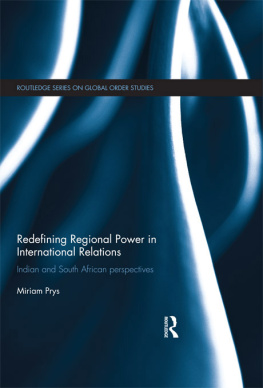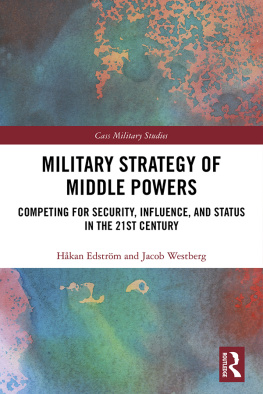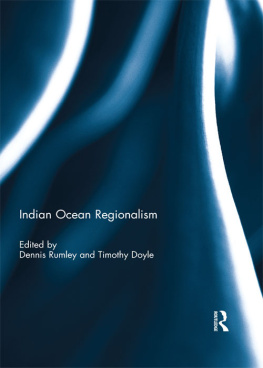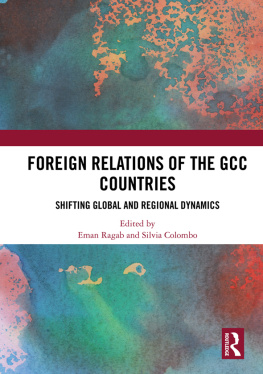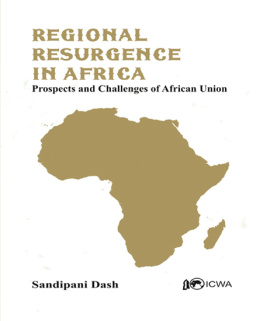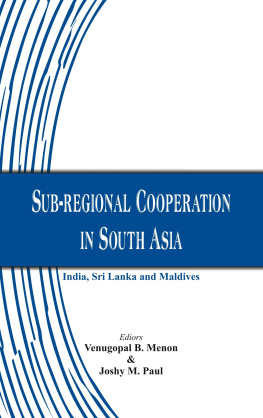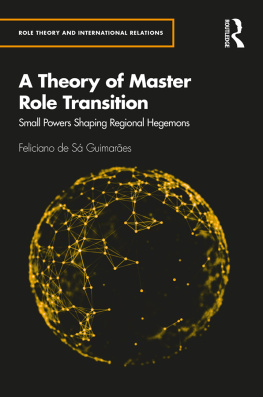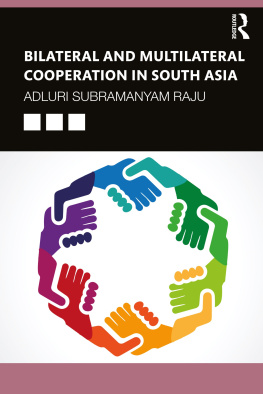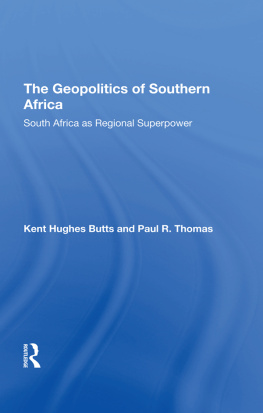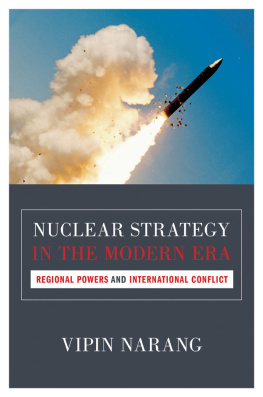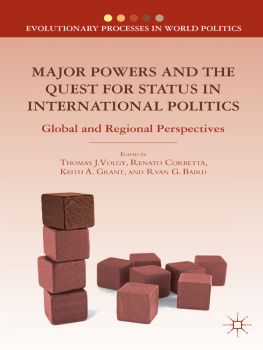Redefining Regional Power in International Relations
This book examines the concept of regional power in international relations.Using the emerging powers of India and South Africa as case studies, it explores how regional powers simultaneously differ and share common features.
The book develops a method to classify and evaluate different types of regional powers and applies this typology to contemporary case studies of India and South Africa. Regional power is often expected to have a positive influence on region- specific problems of conflict, economic deprivation and political instability. In reality, an achievementexpectations gap can be seen in many regional powers, which can be analysed and understood through observable variation in regional power. The author discovers that in addition to management of the internal regional order, regional powers have to establish individuality while fitting into the global international environment, both altering regional dynamics and creating variance in the level of control within the region. Elucidating concepts and definitions, this book is an accessible and in-depth study that both introduces key concepts and provides a framework for the future study of regional power in international relations.
Redefining Regional Power in International Relations will be of interest to students and scholars of regionalism and international relations.
Miriam Prys is Lead Research Fellow and Academic Director of the GIGA Doctoral Program and the Hamburg International Graduate School for the Study of Regional Powers, Hamburg, Germany.
Routledge series on global order studies
Edited by David Armstrong
University of Exeter, UK
and
Karoline Postel-Vinay
CERI, Sciences-Po, Paris, France
This new series focuses on major global issues that have surfaced in recent years which will pose significant and complex challenges to global governance in the next few decades. The books will explore challenges to the current global order and relate to these themes:
- The Challenge to Western Dominance
- The Challenge to International Governance
- Religion, Nationalism and Extremism
- Sustainable Growth
- Global Justice and the Poorest Countries
- The Implications of the Global Economic Crisis for Future World Order
1 Redefining Regional Power in International Relations
Indian and South African perspectives
Miriam Prys
First published 2012
by Routledge
2 Park Square, Milton Park, Abingdon, Oxon OX14 4RN
Simultaneously published in the USA and Canada
by Routledge
711 Third Avenue, New York, NY 10017
Routledge is an imprint of the Taylor & Francis Group, an informa business
2012 Miriam Prys
The right of Miriam Prys to be identified as author of this work has been
asserted by her in accordance with sections 77 and 78 of the Copyright,
Designs and Patents Act 1988.
All rights reserved. No part of this book may be reprinted or reproduced or
utilized in any form or by any electronic, mechanical, or other means, now
known or hereafter invented, including photocopying and recording, or in
any information storage or retrieval system, without permission in writing
from the publishers.
Trademark notice: Product or corporate names may be trademarks or
registered trademarks, and are used only for identification and explanation
without intent to infringe.
British Library Cataloguing in Publication Data
A catalogue record for this book is available from the British Library
Library of Congress Cataloging-in-Publication Data
Prys, Miriam, 1978
Redefining regional power in international relations: Indian and South
African perspectives/Miriam Prys.
p. cm. (Routledge series on global order studies; 1)
Includes bibliographical references and index.
1. Middle powers. 2. Hegemony. 3. HegemonyAfrica, Southern. 4.
HegemonySouth Asia. 5. South AfricaForeign relations1994 6.
IndiaForeign relations21st centuary. 7. Middle powersCase studies.
8. HegemonyCase studies. 9. International relationsCase studies. I. Title.
JZ1312.P79 2012
327.114c23
2011045332
ISBN: 978-0-415-61610-2 (hbk)
ISBN: 978-0-203-11949-5 (ebk)
Typeset in Times New Roman
by Wearset Ltd, Boldon, Tyne and Wear
Acknowledgements
This research project would not have been possible without the support of many people. I would like to especially express my gratitude to Dr Louise Fawcett who offered invaluable assistance, support and guidance. I would further like to thank Professor Andrew Hurrell, who has been an important mentor for me. In addition, I would like to acknowledge the support offered by the German Academic Exchange Service, the Department of Politics and International Relations at the University of Oxford, and St Antonys College and its entire staff who deserve a special credit for providing me with a home abroad between 2004 and 2008. Many thanks to all my friends who have always been there for me. Last, but definitely not least, I want to express my thankfulness and appreciation to my parents and sister, whose support and encouragement have been tremendous.

